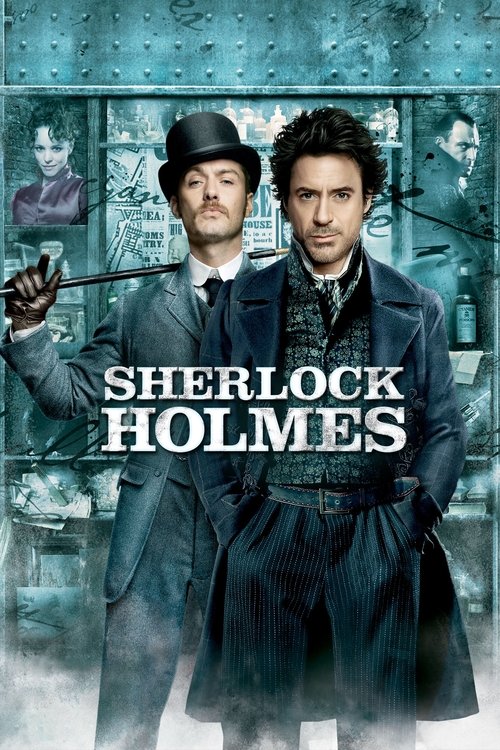
Title: Sherlock Holmes
Year: 2009
Director: Guy Ritchie
Writer: Michael Robert Johnson
Cast: Robert Downey Jr. (Sherlock Holmes),
Jude Law (Dr. John Watson),
Rachel McAdams (Irene Adler),
Mark Strong (Lord Henry Blackwood),
Eddie Marsan (Inspector Lestrade),
Runtime: 129 min.
Synopsis: Eccentric consulting detective Sherlock Holmes and Doctor John Watson battle to bring down a new nemesis and unravel a deadly plot that could destroy England.
Rating: 7.214/10
Shadows of Wit: Unraveling the Kinetic Charm of Sherlock Holmes (2009)
/10
Posted on July 22, 2025
Guy Ritchie’s Sherlock Holmes (2009) reimagines the cerebral detective as a bohemian brawler, trading Arthur Conan Doyle’s measured Victorian restraint for a kinetic, industrial-age spectacle. The film’s greatest triumph lies in its dynamic interplay of direction and acting, with Ritchie’s frenetic pacing and Robert Downey Jr.’s mercurial performance as Holmes forging a magnetic core. Downey’s Holmes is less the aloof logician of canon and more a disheveled genius, his rapid-fire wit and physicality electrifying every scene. Jude Law’s Watson, far from a mere sidekick, grounds the chaos with a blend of exasperation and loyalty, their chemistry crackling like a well-timed chemical reaction. Ritchie’s direction leans heavily into stylized flourishes slow-motion brawls, dizzying montages of Holmes’s deductive process that risk overwhelming the narrative but instead amplify its pulse, making London’s grimy underbelly a character in itself.
Yet, the screenplay, penned by Michael Robert Johnson, Anthony Peckham, and Simon Kinberg, stumbles in its ambition. The plot, centered on the occult machinations of Lord Blackwood (Mark Strong), prioritizes momentum over coherence, with narrative threads occasionally fraying under the weight of spectacle. Blackwood’s menace, while visually arresting, lacks the psychological depth to match Holmes’s intellect, rendering their cat-and-mouse game less compelling than the detective’s banter with Watson. Cinematography by Philippe Rousselot, however, elevates the film’s texture, painting a sooty, gaslit London that feels both historical and fantastical, with sweeping shots of the Thames and half-built Tower Bridge anchoring the story’s stakes.
Hans Zimmer’s score, a rollicking blend of discordant strings and percussive urgency, mirrors Holmes’s anarchic mind, though its relentless energy can feel overbearing in quieter moments. The film’s locations dingy dockyards, gothic manors immerse viewers in a world teetering between reason and superstition, a fitting backdrop for Holmes’s battle against both. While not without flaws, particularly its overstuffed plot, Sherlock Holmes succeeds by embracing its audacious reinvention, delivering a detective story that thrives on charisma and verve rather than fidelity to tradition. It’s a bold, if imperfect, redefinition of a cultural icon, where intellect and action collide with exhilarating results.
0
0
